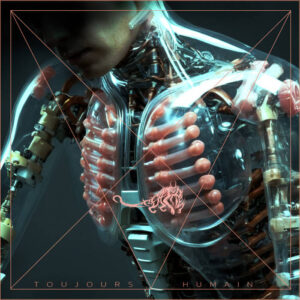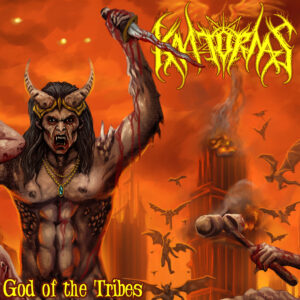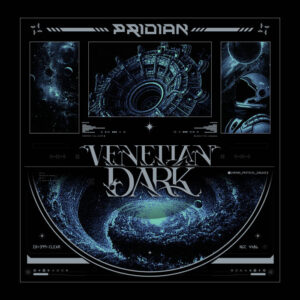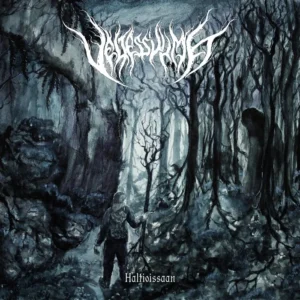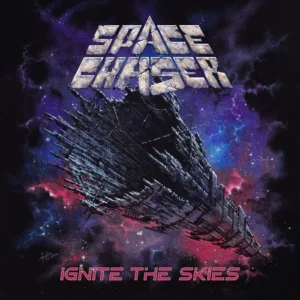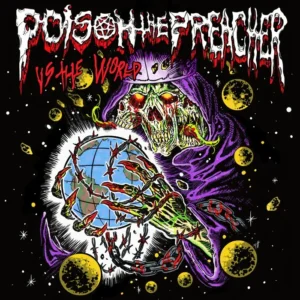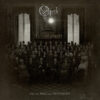The Marble Gates Of Apeiron
Arrayan Path
•
December 13, 2020
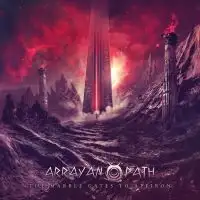
"The epic power metal force" that is ARRAYAN PATH released their eighth full-length album, "The Marble Gates Of Apeiron," at the end of last month (Nov. 27). Though not a concept album, "The Marble Gates Of Apeiron" can be divided into three parts; the first three tracks representing the past, the next triad the present, and the final trio the future. A central theme throughout the album is "the human reaction and response to the destruction of our planet, people's quarrels regarding the pandemic, life, death, religion, and mourning." Thematically, the Cyprus-based (Greece) band also makes ready use of its Greek heritage, infusing a healthy dose of mythology throughout the album.
ARRAYAN PATH's intent on "The Marble Gates Of Apeiron" was making a heavier and more uptempo album than its seven predecessors. Having only a fleeting familiarity with their prior work, what I can attest to is that this album represents a prime example of symphonic power metal with epic, classic, and progressive elements. And despite not being a concept album, it musically has that feel, with many of the tracks displaying a structural and stylistic similarity that permits them to flow from one to another.
The eponymous opening track is an excellent representation of what ARRAYAN PATH has to offer, with a symphonic intro that leads into pure power. So orchestral in spirit, it seemed as if I could, at times, see a conductor waving a baton to lead the band. The track has a sense of urgency, with tempo changes peppered throughout.
Tempo changes are a characteristic of all tracks, typically serving as melodic transition points. The frequent transitions, while keeping the songs stylistically interesting can also make it difficult to get aurally comfortable and settle into the groove of some numbers. On "The Marble Gates Of Apeiron," the tempo changes fit the song perfectly, giving the track a desired dizzying quality consistent with Anaximander's notion that spatial boundlessness (apeiron) functioned in conjunction with eternal motion to cause origination of the word. In other instances, such as on "To Live Another Day," the frequent transitions give a sense of rhythmic disjointedness. Perhaps my favorite transition points were the brief musical pauses heard on "The Morning Ghost" that essentially broke the song into segments.
"Metamorphosis," the album's second track, shows ARRAYAN PATH incorporating elements of progressive metal. Eschewing an orchestral intro, the music is off and running from the start. The stylistic transitions I discussed above are subtle, readily incorporated into the melody. The guitar is given more room to stretch on this track's solo than on the opener.
ARRAYAN PATH can also do more classic heavy metal, best heard on "Virus" and "To Live Another Day." Lyrically "Virus" is a favorite, a real-time comment and critique of humanity in the face of the current pandemic. In the future, when people look back for musical references relevant to this period of world history, "Virus" should be a go-to.
Both "The Mask Of Sanity" and "The Cardinal Order" exemplify the theatrical pomp inherent in symphonic metal. "The Cardinal Order" is remarkable for its power while still allowing its delicate acoustic undertones to grab attention. It is exactly because of the song's power that the string breaks and acoustic interludes are so impactful. Nicholas Leptos's pipes rise to the fore on "The Mask Of Sanity" and the penultimate track, "A Silent Masquerade." His singing blends seamlessly with the melody of each, but yet he is given the space to simultaneously show his impressive range. "A Silent Masquerade's" tonal shifts, lighter then heavier, are attention grabbing, as is the bass solo which eventually serves, along with the drums, as the foundation for the interplay of both guitars.
The album ends with "Black Sales (The Nemean Ode)." An ode to victory in line with the epinikions of ancient Greece, drums underscore the opening of the song, which is almost chant-like tonally, before the track builds in grandeur. A strong ending for this nine song collection, the bass and drums tightly underscore the harmonies of the dual guitars.
ARRAYAN PATH performs each song on the "The Marble Gates Of Apeiron" as opposed to simply playing them. The band stays faithful to the stylings of symphonic metal, unleashing a powerful majesty that can be expected in the genre. In fact, I frequently found myself considering the vocal and musical performance of each song as representing self-contained, metal operettas. Though occasionally crossing the line between grand and bombast, leaving me intermittently wishing that ARRAYAN PATH would just get to it, "The Marble Gates Of Apeiron" is a fine exemplar of metal intended to be consumed as art rather than metal to which you can bang your head.
8 / 10
Excellent
Songwriting
Musicianship
Memorability
Production
"The Marble Gates Of Apeiron" Track-listing:
1. The Marble Gates of Apeiron
2. Metamorphosis
3. Virus
4. The Mourning Ghost
5. To Live Another Day
6. The Mask Of Sanity
7. The Cardinal Order
8. A Silent Masquerade
9. Black Sails (The Nemean Ode)
Arrayan Path Lineup:
Nicholas Leptos - Vocals
Christofors Gavriel - Guitars
Socrates Leptos - Guitars
Miguel Trapezaris - Bass
More results...
